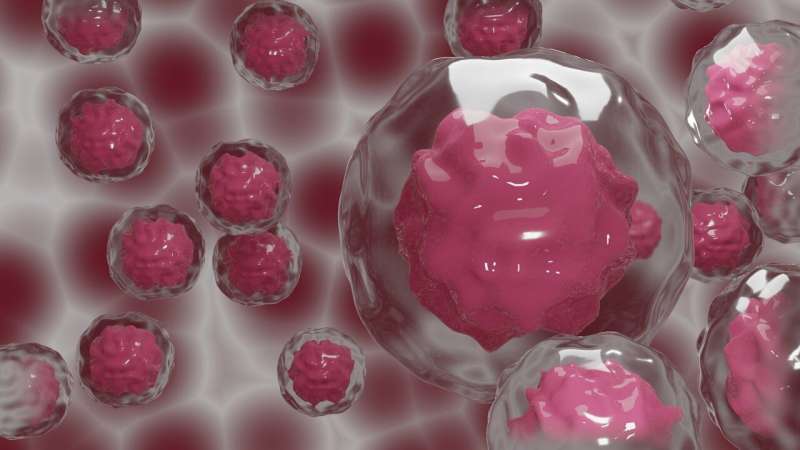#Treatment for myelodysplastic syndrome by hypomethylating agents may activate an oncogene

Table of Contents
“Treatment for myelodysplastic syndrome by hypomethylating agents may activate an oncogene”

Hypomethylating agents (HMA) are currently used as a first-line treatment for patients with myelodysplastic syndrome (MDS), and increasingly in other diseases, but their mechanism of action is not clear. HMAs may affect many genes and could potentially activate an oncogene—a gene that contributes to the development of cancer—but this has not been clearly demonstrated to date.
To test this, investigators from Brigham and Women’s Hospital, Harvard Stem Cell Institute and collaborators studied how HMA affects known oncogenes. They found that HMA activated the oncofetal protein SALL4 in up to 40 percent of patients with MDS, leading to poor patient survival, even in patients in clinical remission. The findings may apply to other cancers and diseases in which HMA are being used.
“SALL4 is an embryonic stem (ES) cell gene and leukemic stem cell factor, and it belongs to a new class of oncofetal gene. Gain-of-function SALL4 transgenic mice develop MDS and acute myeloid leukemia (AML), as well as liver tumors. Loss-of-function studies demonstrated that SALL4 is essential for the survival of cancer cells, including leukemic cells by regulating multiple survival pathways. Our data suggest that MDS patients receiving HMA treatment should be monitored for demethylation and upregulation of oncogenes such as SALL4, which we found are linked to poor outcomes, and these patients should be provided with an additional combination therapy,” said lead author Li Chai, MD, of the Brigham’s Department of Pathology.
The Chai lab has been working on SALL4 since 2003, and Chai has led a research program centered on SALL4 function, mechanism, structure and targeting. Given the gene’s unique oncofetal expression pattern, she and her collaborators have initiated a ground-breaking SALL4-based approach to classify and target cancer, and their previous work has shown the feasibility of targeting this ES cell gene in cancers. The current study appears in The New England Journal of Medicine.
Researchers identify novel pathways responsible for liver cancer
Demethylation and Up-Regulation of an Oncogene after Hypomethylating Therapy, New England Journal of Medicine (2022). DOI: 10.1056/NEJMoa2119771
Junyu Yang et al, Targeting an Inducible SALL4-Mediated Cancer Vulnerability with Sequential Therapy, Cancer Research (2021). DOI: 10.1158/0008-5472.can-21-0030
Bee Hui Liu et al, Targeting cancer addiction for SALL4 by shifting its transcriptome with a pharmacologic peptide, Proceedings of the National Academy of Sciences (2018). DOI: 10.1073/pnas.1801253115
Kol Jia Yong et al, Oncofetal GeneSALL4in Aggressive Hepatocellular Carcinoma, New England Journal of Medicine (2013). DOI: 10.1056/NEJMoa1300297
Citation:
Treatment for myelodysplastic syndrome by hypomethylating agents may activate an oncogene (2022, May 26)
retrieved 26 May 2022
from https://medicalxpress.com/news/2022-05-treatment-myelodysplastic-syndrome-hypomethylating-agents.html
This document is subject to copyright. Apart from any fair dealing for the purpose of private study or research, no
part may be reproduced without the written permission. The content is provided for information purposes only.
If you liked the article, do not forget to share it with your friends. Follow us on Google News too, click on the star and choose us from your favorites.
For forums sites go to Forum.BuradaBiliyorum.Com
If you want to read more Like this articles, you can visit our Science category.



